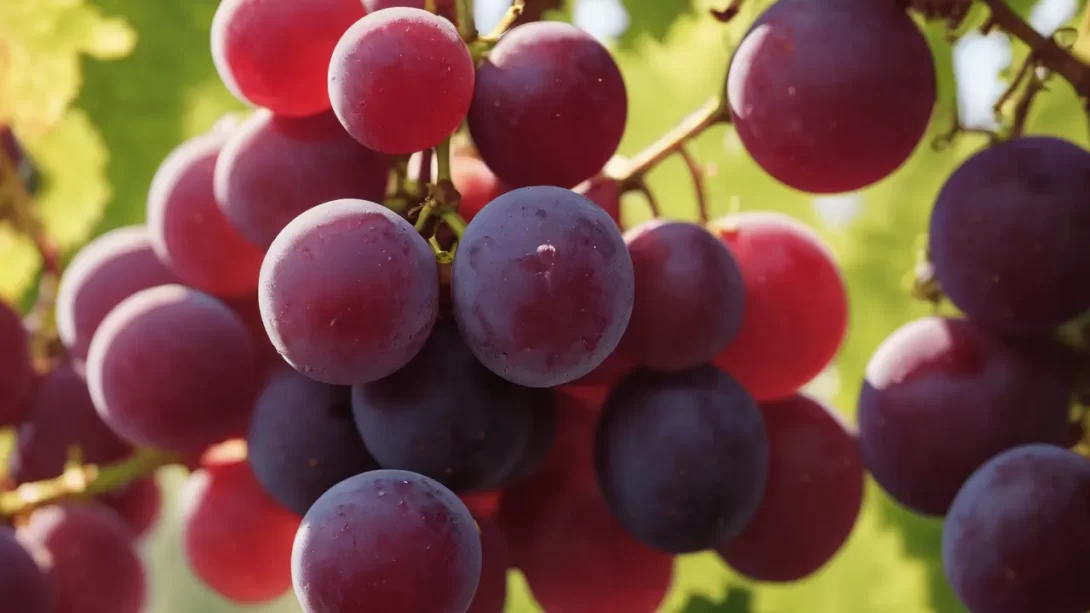Seedless grapes have become a staple in fruit bowls and lunchboxes worldwide, prized for their convenience and sweet flavor. As consumers grow increasingly conscious of how their food is produced, questions about the nature of seedless grapes are common, particularly regarding their status as genetically modified organisms (GMOs). Understanding what GMOs are and how they differ from other agricultural practices is essential in addressing these queries.
Seedless Grapes
Seedless grapes are varieties of grapes that produce little to no seeds in their fruit. While grapes are naturally seeded, certain varieties have been cultivated over centuries to reduce or eliminate seed production. The development of seedless grapes dates back to ancient times, with references found in historical texts. These grapes are not a modern invention but rather the result of long-term agricultural practices.
The Process of Creating Seedless Grapes
The cultivation of seedless grapes involves natural and agricultural methods, primarily selective breeding and hybridization. Selective breeding involves choosing grape plants with desirable traits, such as smaller seeds, and breeding them over multiple generations to enhance these characteristics. Hybridization, on the other hand, involves crossing different grape species or varieties to produce a new variety with specific desired traits, like seedlessness.
These techniques are based on principles of genetics and botany but do not involve the direct manipulation of the grape’s genetic material in the way that is done in genetic engineering. Therefore, while the creation of seedless grapes is a result of human intervention in plant breeding, it is distinct from the processes used to create GMOs. This distinction is crucial in understanding the nature of seedless grapes in the context of modern agriculture.
GMOs in Agriculture
In order to fully grasp the distinction between seedless grapes and GMOs, it’s important to understand what GMOs are. Genetically Modified Organisms in agriculture are organisms whose genetic material has been altered using genetic engineering techniques. These modifications are made for various reasons, including improving resistance to pests and diseases, enhancing nutritional content, and increasing yield and hardiness. This process involves directly modifying the DNA of the plant, often by inserting genes from other organisms, a practice that cannot occur naturally through traditional breeding methods.
Are Seedless Grapes Genetically Modified?
Seedless grapes are not genetically modified in the conventional sense of the term. The development of seedless grapes does not involve the direct modification of the plant’s DNA. Instead, as previously discussed, they are primarily the product of selective breeding and hybridization. These practices have been used for centuries and are fundamentally different from the laboratory-based genetic engineering techniques used in creating GMOs.
The confusion often arises from a misunderstanding of these different agricultural methods. While both selective breeding and genetic modification aim to produce plants with specific traits, the process and science behind them are distinct. Selective breeding works within the natural boundaries of the plant’s genetics, while genetic modification transcends these boundaries, introducing new traits that would not be possible through traditional breeding alone.
Consumer Concerns and Misconceptions
The distinction between seedless grapes and GMOs is crucial in addressing consumer concerns. There is a widespread misconception that any food product that does not grow in its original, wild state is a GMO. This misconception leads to unwarranted concerns about the safety and naturalness of seedless grapes. It’s important to clarify that the absence of seeds in grapes is a result of natural mutations and traditional agricultural practices, not modern genetic engineering.
Understanding the science behind seedless grapes can help consumers make more informed choices. While there are legitimate debates and concerns regarding GMOs, they do not directly apply to seedless grapes. This clarification is essential in dispelling fears and misinformation about the nature and safety of consuming seedless grapes.
Environmental and Health Considerations
The cultivation of seedless grapes, like any agricultural practice, has environmental impacts. These impacts, however, are more related to conventional farming practices such as water usage, pesticide application, and land use, rather than issues specific to GMO cultivation. In terms of health, seedless grapes offer the same nutritional benefits as their seeded counterparts, including vitamins, minerals, and antioxidants. Concerns often associated with GMOs, such as allergenicity or gene transfer, are not relevant for seedless grapes given their non-GMO status.
It’s also worth noting that the conventional breeding techniques used to develop seedless grapes do not pose the same ethical and ecological concerns often debated in the context of GMOs. For example, there is no risk of gene flow to wild or non-modified crops, which is a concern with some GMOs. This makes seedless grapes a less contentious choice for those wary of the potential impacts of GMOs on biodiversity and ecosystem balance.
Conclusion
In summary, seedless grapes are not genetically modified organisms. They are the result of centuries of selective breeding and hybridization, practices distinct from the genetic engineering used to create GMOs. Understanding this distinction helps clarify common misconceptions and addresses consumer concerns about the nature of the food they consume.
As consumers increasingly seek transparency in their food sources, it’s important to distinguish between different agricultural practices and their respective impacts. Seedless grapes, enjoyed for their convenience and flavor, can be consumed with the understanding that they are a product of traditional plant breeding methods, not modern genetic modification. This knowledge allows consumers to make informed choices based on accurate information about the food they eat and its production.



